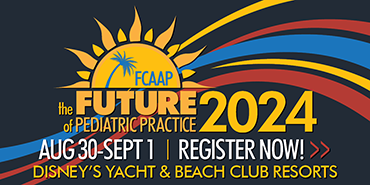Last month, the U.S. Supreme Court ruled 5-4 to allow the Trump administration’s public charge final rule to take effect nationwide, except for Illinois. The Department of Homeland Security will begin implementing the rule on February 24.
The American Academy of Pediatrics has been speaking out against this policy since it was first proposed three years ago, and issued this press statement on the heels of the court’s decision.
Pediatricians can play a critical role in educating immigrant families about what this final rule does and does not mean for their children and their ability to access vital services.
The AAP has resources from the Protecting Immigrant Families Campaign that can be shared with your patients or displayed in pediatric offices.
Here’s a quick rundown of what pediatricians should know and how you can help:
What is the public charge final rule?
Some people who apply for a green card or a visa to enter the United States will be subject to a “public charge” test, which looks at several factors, including whether the person is likely to use certain government services in the future. In making this determination, immigration officials review all of a person’s circumstances, including their age, income, education, and health status as well as whether they are using or are likely to use certain public programs.
Under the final rule, an immigrant’s use of the Supplemental Nutrition Assistance Program, housing assistance, and Medicaid (for non-pregnant adults) on or after February 24, 2020, can now be considered to deny entry or permanent legal status in the United States.
What did the Supreme Court ruling do?
The decision allows the government to move forward with implementing the public charge rule everywhere except Illinois, which has its own injunction enforceable within the state.
What should I tell my patients who are immigrants or live in immigrant families?
Public charge does not apply to all immigrants. Every family is different, and most people who are subject to the new rule are not eligible for the programs it now includes.
Programs that are not listed above will not be counted in the public charge test. This includes Medicaid for children under 21 years, pregnant women, and new mothers, WIC, CHIP, school breakfast and lunch, food banks, state or local health care programs, and many more. You should still encourage immigrant families in your practice to access these services as needed. Please feel free to share the resources from AAP and the Protecting Immigrant Families campaign.
What’s next?
Since the Supreme Court only ruled on the legality of the nationwide injunction and did not rule on whether the public charge rule itself is legal, the AAP will continue advocate for the rule to be overturned in the courts. One way the AAP has done this is through the filing of amicus “friend of the court” briefs. Various state AAP chapters, including FCAAP, have joined with the national AAP in filing these briefs.
The Protecting Immigrant Families Campaign will be hosting a Twitterstorm on Monday, February 24, at 2 p.m. EST to raise awareness about public charge. Please consider adding your voice by sharing messages using #ProtectFamilies.
Thank you to the many AAP members who have lent their voices to speaking out against this harmful policy. We will be in touch soon with opportunities for you to learn more about public charge, including an educational webinar. Stay tuned!
